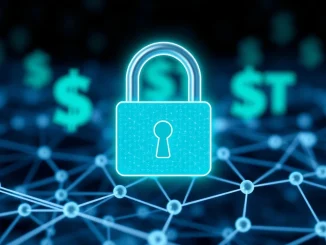
Hold onto your hats, crypto enthusiasts! Breaking reports are flooding in about a significant security incident impacting the on-chain contract platform KiloEx. Early data from Etherscan paints a grim picture: a staggering $7.4 million has been drained due to a suspected crypto security breach. This isn’t just pocket change; this is a substantial blow that raises serious questions about the safety of funds in the decentralized finance (DeFi) space. If you’re invested in KiloEx or simply concerned about the broader blockchain security landscape, you need to pay attention to this developing story.
KiloEx Hack: Unpacking the Devastating Security Breach
The crypto world is no stranger to hacks, but the scale of the KiloEx hack is particularly concerning. According to on-chain data, the incident unfolded recently, targeting the platform’s smart contracts. The attackers exploited vulnerabilities, leading to unauthorized withdrawals of various digital assets. The initial reports highlight that the impact spans across multiple networks, including both the BNB Chain and Base networks, indicating a widespread issue rather than a localized exploit.
Let’s break down what we know so far:
- Massive Losses: Approximately $7.4 million has been confirmed as lost, a figure that could potentially rise as investigations continue and more details emerge.
- Multi-Network Impact: The crypto security breach isn’t confined to a single blockchain. Assets on both BNB Chain and Base networks were affected, suggesting a fundamental flaw in the KiloEx contract infrastructure.
- Contract Address Compromised: The root cause appears to be a contract address compromised, allowing malicious actors to manipulate the smart contracts and siphon funds. This points to potential vulnerabilities in the smart contract code itself or weaknesses in access controls.
- On-Chain Evidence: The incident was detected and is being tracked through on-chain data from Etherscan and similar blockchain explorers, underscoring the transparency and auditability of blockchain technology – even in the face of bad news.
What Does a ‘Contract Address Compromised’ Actually Mean?
For those less familiar with the technicalities, the term “contract address compromised” might sound abstract. Imagine a smart contract as a digital vault holding and managing cryptocurrency assets based on predefined rules. The contract address is essentially the public address of this vault. When this address is “compromised,” it means that unauthorized individuals have gained control or found a way to manipulate the vault’s operations without permission.
This can happen through various means, including:
- Code Vulnerabilities: Flaws in the smart contract code itself, which attackers can exploit to bypass security measures.
- Private Key Leaks: If the private keys controlling the contract are exposed or stolen, attackers can directly control the contract’s functions.
- Logic Exploits: Clever manipulation of the contract’s logic to trick it into performing unintended actions, like transferring funds to unauthorized addresses.
In the case of the KiloEx hack, the specifics of the vulnerability are still under investigation. However, the result is clear: malicious actors were able to interact with the KiloEx contracts in a way that led to significant crypto losses.
The Ripple Effect: Crypto Losses and DeFi Confidence
The immediate consequence of the KiloEx hack is, of course, the substantial financial loss. $7.4 million is a significant sum, and those directly affected – users who had funds within the KiloEx platform – are undoubtedly feeling the sting. But the impact extends beyond just the immediate victims. Incidents like this can erode confidence in the broader DeFi ecosystem.
Here’s why this crypto security breach is concerning for the wider crypto community:
- Trust in DeFi Platforms: Each major hack chips away at the trust users place in DeFi platforms. If platforms are perceived as insecure, adoption and growth can be hindered.
- Market Volatility: Large-scale hacks can trigger market volatility, as investors become risk-averse and potentially pull funds out of DeFi projects.
- Regulatory Scrutiny: Incidents like this often attract increased regulatory attention to the crypto space, potentially leading to stricter regulations that, while aimed at protection, could also stifle innovation.
- Learning Opportunity (Hopefully): While painful, these events serve as crucial learning experiences for the industry. They highlight the ongoing need for rigorous security audits, better smart contract development practices, and robust risk management protocols.
Blockchain Security in the Spotlight: Is DeFi Really Safe?
The KiloEx hack throws the spotlight once again on a critical question: how secure is DeFi, really? Decentralized finance promises a more open, accessible, and efficient financial system. However, the very nature of its open and permissionless structure also presents unique security challenges.
Let’s consider some key aspects of blockchain security in the DeFi context:
The Double-Edged Sword of Smart Contracts
Smart contracts are the backbone of DeFi, automating transactions and agreements without intermediaries. However, their immutability – once deployed, they are very difficult to change – means that any vulnerabilities within the code can be exploited relentlessly. Thorough audits and rigorous testing are absolutely crucial, but even then, unforeseen bugs can slip through.
The Human Factor: Social Engineering and Phishing
While smart contract security is paramount, human error remains a significant vulnerability. Phishing attacks, social engineering scams, and weak password practices can all lead to users losing control of their private keys, regardless of how secure the underlying blockchain technology is. User education and awareness are just as important as technical security measures.
The Constant Evolution of Threats
The crypto space is dynamic, and so are the tactics of malicious actors. As platforms and protocols evolve, new attack vectors emerge. Blockchain security is not a static state; it requires continuous vigilance, adaptation, and innovation to stay ahead of emerging threats.
The Importance of Decentralization (Ironically)
While decentralization can sometimes make coordination for security responses more complex, it also offers a degree of resilience. Because DeFi is distributed, a single point of failure is less likely to cripple the entire system. However, this also means that responsibility for security is more distributed, requiring each platform and user to take proactive measures.
Protecting Yourself: Actionable Insights to Minimize Crypto Losses
In the wake of incidents like the KiloEx hack, it’s natural to feel a bit uneasy about the safety of your crypto holdings. While no system is entirely risk-free, there are concrete steps you can take to enhance your blockchain security and minimize the potential for crypto losses:
- Do Your Due Diligence: Before interacting with any DeFi platform, research it thoroughly. Look for security audits from reputable firms, understand the team behind the project, and assess the platform’s track record. Is the platform transparent about its security practices?
- Diversify Your Holdings: Don’t put all your eggs in one basket. Spreading your crypto assets across different platforms and wallets can mitigate the impact of a single security breach.
- Use Hardware Wallets: For long-term storage of significant crypto holdings, hardware wallets offer an extra layer of security by keeping your private keys offline and away from potential online threats.
- Stay Informed and Vigilant: Keep up-to-date with the latest security news and best practices in the crypto space. Be wary of phishing attempts and always double-check transaction details before confirming them.
- Consider Insurance (Where Available): While still a developing area in crypto, some insurance options are emerging that can provide coverage against certain types of crypto losses. Explore if this is a suitable option for your risk profile.
The Path Forward: Learning from the KiloEx Hack
The KiloEx hack is a stark reminder that blockchain security remains a critical and evolving challenge in the crypto world. While the immediate crypto losses are undoubtedly painful, these incidents also present an opportunity for growth and improvement. By learning from these vulnerabilities, the crypto community can collectively strengthen security practices, build more resilient platforms, and ultimately foster greater trust and confidence in the future of decentralized finance.
The investigation into the KiloEx hack is ongoing, and more details will likely emerge in the coming days and weeks. Stay tuned to reliable crypto news sources for updates and continue to prioritize security as you navigate the exciting, but sometimes risky, world of cryptocurrencies.



